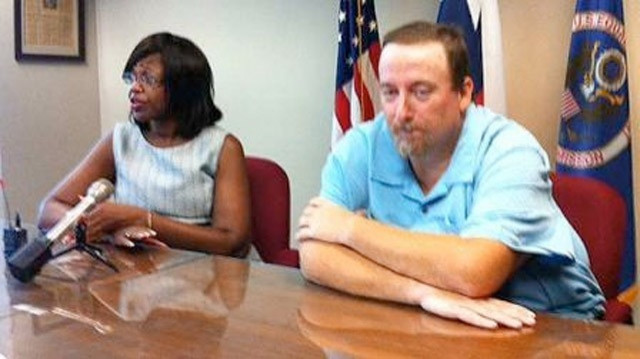Ronald Kratz Case: Should Obesity and 'Ugliness' Count in ADA?
ANALYSIS

Ronald Kratz II considers himself disabled; as might ugly people. Both parties could be eligible for government assistance.
Here are the sides:
Ronald Kratz
Backed by the US government, Kratz, from Houston, TX, sued the defense contractor BAE Systems Inc. on Sept. 27 on the grounds that the company fired him because he is obese and failed to accommodate him under the Americans with Disabilities Act (ADA).
Kratz weighed over 600 pounds while working in the manufacturing division of BAE in Houston. He had been at the company since 1994 up until he was fired in 2009.
He claims to have had very good performance reviews in 2008 and 2009. And 90 percent of his job entailed typing at a desk.
But then, one morning, he was unexpectedly called into his supervisor's office and instructed to go see HR. He was then told that they were terminating [him] due to [his] weight, quoted an ABC News article.
Kratz, who has since lost over 200 pounds, has not been able to find another job since the lay-off. His unemployment benefits ran out last month and his wife supports their family of five.
Kratz was also told that he could not be transferred to any other division.
The US Equal Employment Opportunity Commission (EEOC) is now demanding back wages, other affirmative relief necessary to eradicate the effects of the unlawful employment practices to which he was subjected, compensatory damages for past and future losses from emotional pain and suffering, and punitive damages for BAE's malicious and/or reckless conduct.
Ugly People
Daniel S. Hamermesh, a professor of economics at the University of Texas, Austin, and the author of the book Beauty Pays, publicized his proposal for affirmative action for ugly people in a New York Times piece.
Hamermesh states that being beautiful helps you earn more money, find a superb specimen for a spouse, and get better deals at the bank. According to him an American worker who was among the bottom one-seventh in looks, as assessed by randomly chosen observers, earned 10 to 15 percent less per year than a similar worker whose looks were assessed in the top one-third or a $230,000 difference.
He believes that ugliness could be protected by an extension of the ADA. He also promotes ugly people seek help from the EEOC to overcome discrimination as well as the establishment of affirmative-action programs.
The Americans with Disabilities Act
The ADA was enacted by Congress in 1990. It is a comprehensive peice of legislation that prohibits discrimination based on facets such as race, color, creed, sex, age, or mental/physical disabilities.
In 2008 George Bush signed into law the ADA Amendments Act of 2008 which sought to make the definitions of disabled broader since some past court rulings were very restrictive.
Now, in 2011, the question is whether the ADA should be revised again to blanket obese and ugly individuals under its protections.
On the Devil's Advocate side, it can be said that obesity is a life decision and ugliness is subjective. Do such qualities that are dissimilar from race, sex, age, et cetera qualify someone for government assistance?
Then again, discrimination on any basis is obvisouly morally wrong. In the work, place individuals should be judged based on performance and quality of work, not physical or essential characteristics. When discrimination equates to the inability to work comfortably at one's job or the inability to hold a job at all, a clear problem emerges.
The case is open.
© Copyright IBTimes 2025. All rights reserved.





















